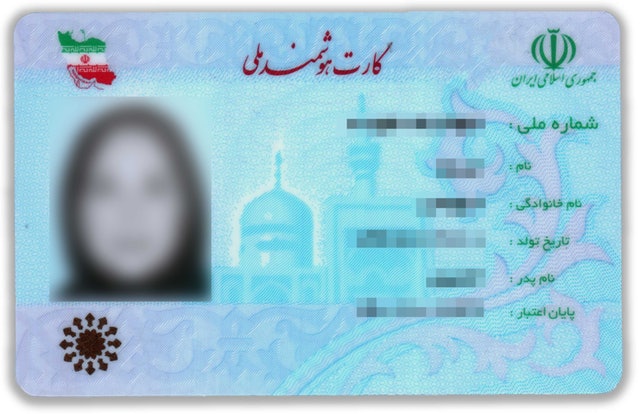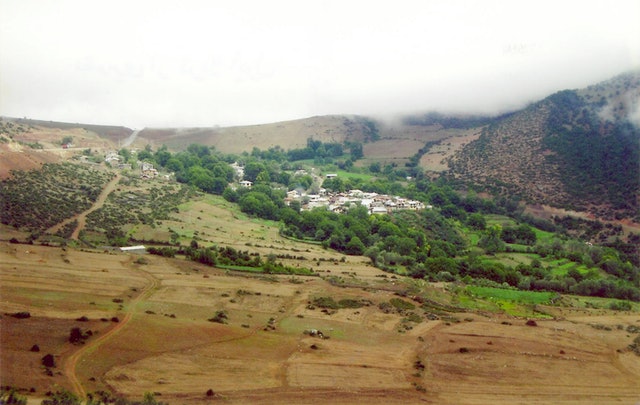Source: www.smh.com.au
Steve Jacobs

The Baha’i community living in Iran is experiencing a surge in persecution following the tension between the US and Iran.
History shows that, in times of national crisis in Iran, persecution of the minority religious group intensifies, Natalie Mobini, spokeswoman for the Australian Baha’i Community, said.
Iranian authorities have restricted Baha’is across the country from obtaining national identification cards, depriving them of basic civil services. The personal data of this card holder have been blurred so the person can’t be identified.
In the past three months, Baha’is have experienced multiple home raids, attacks on properties, confiscation of possessions, dismissals from employment and denial of access to higher education, Diane Ala’i, representative of the Baha’i International Community in Geneva, said.
Dozens of Baha’is have been arrested and dozens more have received lengthy prison terms.

Baha’i homes have been destroyed, while, in one case, a non-Baha’i employer was forced to provide a list of her Baha’i employees and then to dismiss them from employment.
This is of great concern to Baha’is around the world, including the approximately 20,000 who live in Australia, many of whom have family in Iran, Dr Mobini said.
In one disturbing example, Iranians applying for new identity cards that contain a “smart” chip, must select one of the four religions recognised under the constitution: Islam (the official religion), Christianity, Judaism or Zoroastrianism.
The option for “other religions”, including the Baha’i faith, has been removed. As a result, several reports confirm that Baha’is have been prevented from obtaining identity cards.
Without a card, citizens are deprived of some of their most basic civil rights, such as applying for a loan, obtaining a driver’s licence or passport, opening a bank account, cashing a cheque or renting or buying property.
The form was reportedly changed after a conservative MP wrote to the Interior Minister last year objecting to the option for “other religions” in the existing cards because this implied other religions were legitimate, according to multiple reports from Iran.
The community believes the measure is consistent with the government’s efforts over the past four decades to persecute Baha’is and eliminate them as a viable entity in Iran, Dr Mobini said.
Baha’is cannot lie about their beliefs either, as making a false declaration is an offence that could have severe repercussions, and their teachings call on them to be truthful, she said.
Smaller groups such as Mandaeans and Yazidis are also affected, she said.
In another move, a court has ruled that all properties belonging to Baha’is in the village of Ivel be confiscated on the basis that they are “a deviant sect” and “there is no legitimacy to their ownership of property”.
Ivel is a village in Mazandaran Province where Baha’is have lived since the mid-1800s, and Baha’is comprised half of the population, the other half being Muslim.
The decision was made by the Special Court for Article 49 of the Constitution, Mazandaran Branch, which implements the decisions for the Supreme Leader of Iran.
Over the course of the last century, periods of comparative harmony have been interspersed with outbreaks of violent persecution.
The situation deteriorated after the 1979 revolution. Eventually most of the Baha’is were forced to live elsewhere, and returned only in summer to harvest and plant crops and tend to their properties.
In 2010 about 50 of their homes were demolished.
No compensation is mentioned in the decision and it is unclear whether any property has already been confiscated. An appeal has been lodged.
In a swipe at Iran’s pre-revolutionary rulers and at Israel, the court says, “with the influence [Baha’i’s] had in the former Royal Court and government, and with the support of the usurper Zionist regime, [they] acted in adversely possessing and taking over the ancestral lands of Moslems, and spent the money earned from said land toward the promotion of the deviant sect”.
The Baha’i faith is an independent world religion, founded in 1844 in Persia (now Iran).
The faith does not have clergy but is administered by annually elected councils of men and women.
There are 300,000 Baha’is in Iran; they make up the country’s largest non-Muslim religious minority.
Tehran has banned the administration of the faith and, in the early 1980s, following the inception of the Islamic Republic, many Baha’is serving on the administrative bodies were executed.
While the persecution is driven by the government, the Baha’is have received support from many Iranians, such as lawyers and human rights advocates, who take up their cases often at great personal cost, Dr Mobini said.
Israel and Australia are home to Baha’i holy sites and also some of the administrative buildings.
DFAT has been approached for comment.
Leave a Reply